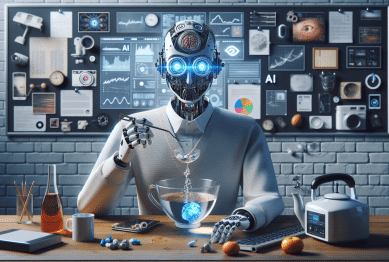From automatic lighting to AI-led home appliances, smart technology that saves time is becoming essential in modern homes. In 2025, advances in AI-powered automation, seamless device interoperability, and intuitive smart home systems are redefining convenience. Whether you’re a busy professional, a parent, or someone who values free time, these innovations are reshaping daily routines.

Why Smart Tech That Saves Time Matters in 2025
Today’s fast-paced world demands solutions that let us streamline tasks and reclaim time. Smart devices tailored for time savings deliver:
- Automation of routine tasks, freeing mental bandwidth and energy
- Personalized efficiency, where systems anticipate user needs
- Seamless integration, so actions like bedtime routines happen effortlessly
Trends show that smart home tech reducing daily friction isn’t just a convenience—it’s essential.
Key Emerging Trends in Smart Technology That Saves Time
1. AI-Driven Smart Kitchens & Appliances
AI is transforming kitchens from functional spaces to proactive helpers. Appliances now:
- Auto-adjust cooking cycles and detergent based on content
- Use internal cameras to suggest meals and track inventory
- Notify users of maintenance needs and efficiency opportunities
These features reduce decision fatigue and speed up food prep and cleanup.
2. Morning Boost: Smart Mirrors
Smart mirrors are redefining morning routines. They blend reflections with:
- Weather and news updates
- Health metrics and daily schedules
- Skincare recommendations
By displaying relevant info right where you prepare for your day, they eliminate extra screen-checking steps.
3. Intelligent Lighting That Guides Your Day
Smart lighting systems now follow your circadian rhythm, adjusting color and brightness automatically. Benefits include:
- Easier transitions between sleep and wake states
- Better focus during work hours
- Reduced eye strain and improved mood
You simply live. The lighting adapts for you.
4. Simplified Automation with Natural Language
Creating smart home routines used to be finicky. Now, Samsung’s SmartThings lets users:
- Set routines with simple language, like “Set bedtime mode”
- Simulate setups before buying devices
- Schedule multi-step actions with ease
That means fewer taps and more automation.
5. The Power of Interoperability: Enter Matter
Smart devices from different brands finally working together is no longer a dream. Matter—a unified standard supported by Apple, Google, Amazon, and more—promises:
- Plug-and-play compatibility
- No juggling apps or hubs
- A truly cohesive smart home ecosystem
Trusted devices, one interface.
6. AI-Powered Water Purifier by Samsung
Not everything you interact with needs time. Samsung’s AI countertop water purifier:
- Cleans up to 82 harmful substances automatically
- Sterilizes with electrolysis every three days
- Alerts users about filters and supports voice/app control
Its automation reduces maintenance and maximizes peace of mind.
7. Integrated AI and Home Health Tools
Homes are getting smarter about well-being:
- Sleep trackers, circadian lighting, and air-quality sensors become commonplace
- Smart kitchen tools suggest healthier meals, detect allergens, and nudge hydration
- Smart thermostats optimize heating based on presence and weather
These systems act like a personal wellness concierge.
Practical Guide: Implement Smart Tech That Saves Time
Here’s how you can adopt these innovations effectively:
- Start with what you use daily
- Begin with smart lights, plugs, or a smart speaker.
- Choose compatible ecosystems
- Stick with or gradually transition to devices that support Matter for integration ease.
- Prioritize automation with purpose
- Use natural language routines to control lights, security, or morning presets.
- Upgrade key functional areas
- AI fridges/mirrors in kitchens and bathrooms add visible convenience immediately.
- Let your home care for you
- Install lighting and air sensors that adapt without prompts.
- Test before you invest
- Visit smart device showrooms or rent before full upgrades.
Real-World Impact
Data from a UK survey shows time-saving tech like smart meters, voice assistants, and self-checkouts can save users over 220 hours per year—about 4 hours a week. That’s more time, and less stress.
Sample Morning Smart Routine
| Time | Activity | Tech Action |
|---|---|---|
| 6:30 AM | Wake-up | Lights gradually brighten, coffee starts |
| 6:35 AM | Mirror glance | Weather/news displayed |
| 7:00 AM | Leave home | Smart plug shuts off idle devices |
| 7:05 AM | Home check | Security system syncs with daily schedule |
| 10:00 PM | Bedtime preparation | Lights dim, thermostat adjusts automatically |
Conclusion
Smart technology that saves time is transforming how we live—especially in 2025. From AI meal suggestions to voice-driven automation and seamless device ecosystems, modern homes are becoming efficient partners. These tools don’t just add convenience—they help us reclaim what matters.
References
- AI-driven personalization, intuitive ecosystems, health-focused devices (sleep trackers, circadian lighting, air-quality sensors), and voice or gesture-based control are key smart home trends reshaping modern living in 2025. https://osprey.life/blogs/news/top-5-smart-home-trends-in-2025?srsltid=AfmBOorO0nzSMylYHIzECsx5dlFGL4-4iaXZBwxuuaTYiBg4Lumz198u&utm_source=chatgpt.com
- The Matter standard, backed by Apple, Google, Amazon, and others, is driving seamless cross-brand interoperability in smart homes. https://www.mintel.com/insights/technology/the-rise-of-smart-home-technology/?utm_source=chatgpt.com
- Smart home technologies like sleep trackers, circadian lighting, smart air-quality monitors, and wellness-focused AI kitchen tools are increasingly common in 2025. https://sqmagazine.co.uk/smart-home-statistics/?utm_source=chatgpt.com









